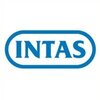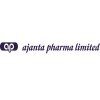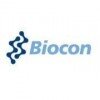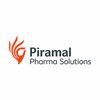Filter interviews by
Biotech Laboratories Quality Analyst Interview Questions and Answers
Biotech Laboratories Quality Analyst Interview Experiences
1 interview found
I applied via Company Website and was interviewed in Jan 2024. There was 1 interview round.
Question about biotechnology releted
Interview Preparation Tips
- Immunology
- Cell Biology
Top trending discussions






Interview questions from similar companies

I applied via Recruitment Consulltant and was interviewed in Jul 2024. There was 1 interview round.
(5 Questions)
- Q1. Types of chromatography.?
- Ans.
Chromatography is a technique used to separate and analyze mixtures of chemicals based on their properties.
Types of chromatography include gas chromatography, liquid chromatography, ion exchange chromatography, and affinity chromatography.
Gas chromatography separates compounds based on their volatility and interactions with a stationary phase.
Liquid chromatography separates compounds based on their affinity for the mob...
- Q2. Trouble shooting of HPLC and GC.?
- Ans.
Troubleshooting of HPLC and GC involves identifying and resolving issues with the equipment to ensure accurate results.
Perform regular maintenance checks on the equipment to prevent issues
Calibrate the instruments regularly to maintain accuracy
Check for leaks, blockages, or contamination in the system
Verify the integrity of columns and detectors
Review method parameters and conditions for any errors or inconsistencies
- Q3. Types Of titration.?
- Ans.
Types of titration include acid-base titration, redox titration, complexometric titration, and precipitation titration.
Acid-base titration involves the neutralization of an acid with a base or vice versa.
Redox titration involves a redox reaction between the analyte and titrant.
Complexometric titration involves the formation of a complex between the analyte and titrant.
Precipitation titration involves the formation of a
- Q4. Reverse phase and normal phase.?
- Q5. Types of HPLC and GC columns
- Ans.
Types of HPLC columns include reverse phase, normal phase, ion exchange, size exclusion, and affinity. Types of GC columns include packed, capillary, and micro-packed columns.
HPLC columns: reverse phase, normal phase, ion exchange, size exclusion, affinity
GC columns: packed, capillary, micro-packed
Interview Preparation Tips

I applied via Walk-in and was interviewed before Apr 2023. There was 1 interview round.
(2 Questions)
- Q1. There are so many questions like what about you know apqr bpr validation activity document activity like all.
- Q2. Than hr interview round family details why you join the intas and all.
Interview Preparation Tips

I applied via Walk-in and was interviewed before Aug 2022. There were 2 interview rounds.

(4 Questions)
- Q1. Carrier plan and strategy you have made.
- Ans.
I have developed a carrier plan focused on continuous learning, skill development, and networking to advance in the field of quality analysis.
Continuously update skills through online courses and workshops
Network with industry professionals to stay updated on best practices
Set goals for career advancement and track progress regularly
- Q2. Long term as well as shot term goals
- Q3. Where you want to see yourself after 3/4 years.
- Q4. Are you hard working or smart working be very clear what you say with appropriate justification.
Interview Preparation Tips

I applied via Referral and was interviewed in Jul 2021. There were 4 interview rounds.
Interview Questionnaire
6 Questions
- Q1. General discussion related to work experience, culture,
- Q2. Difference between smart work and hard work
- Q3. Sallary discussion, acceptance vs real
- Q4. What do you mean by pH, how we can measure?
- Ans.
pH is a measure of acidity or alkalinity of a solution. It is measured on a scale of 0 to 14.
pH stands for 'potential of Hydrogen'
It is a measure of the concentration of hydrogen ions in a solution
A pH of 7 is considered neutral, below 7 is acidic, and above 7 is alkaline
pH can be measured using pH meters, pH paper/strips, or pH indicators
- Q5. Calibration and principles of instruments.
- Ans.
Calibration ensures accuracy of instruments by comparing measurements to a known standard.
Calibration is the process of adjusting an instrument to ensure its measurements are accurate.
Principles of instruments include accuracy, precision, repeatability, and reproducibility.
Examples of calibrated instruments include thermometers, scales, and pressure gauges.
- Q6. Investigation tools and their application.
- Ans.
Investigation tools are used to analyze data and identify issues in software development.
Common investigation tools include debuggers, profilers, and log analyzers.
Debuggers help identify and fix coding errors by allowing developers to step through code and inspect variables.
Profilers analyze the performance of code, identifying bottlenecks and areas for optimization.
Log analyzers parse and analyze log files to identif...
Interview Preparation Tips
- Out of trend
- Lab incident
- OOS
- Investigation
- HPLC
If you do not know just tell then sorry I don't know, they are really appreciate and give ans for that.

Interview Questionnaire
2 Questions
- Q1. About basic knowledge of HPLC, Chromatography
- Q2. What is Molarity, molality,normality,UV range
- Ans.
Molarity, molality, and normality are measures of concentration in chemistry. UV range refers to the range of ultraviolet light.
Molarity is the number of moles of solute per liter of solution.
Molality is the number of moles of solute per kilogram of solvent.
Normality is the number of equivalents of solute per liter of solution.
UV range refers to the range of wavelengths of ultraviolet light, typically between 10 and 40

Interview Questionnaire
1 Question
- Q1. PDA and Uv detector difference
- Ans.
PDA and UV detector are both used in HPLC analysis but differ in their detection mechanism.
PDA detector measures the entire UV-Vis spectrum of the eluent while UV detector measures at a specific wavelength.
PDA detector can provide more information about the sample while UV detector is more sensitive and specific.
PDA detector is more expensive than UV detector.
PDA detector is useful for detecting impurities while UV det...

I applied via Walk-in and was interviewed in Mar 2023. There were 4 interview rounds.

Some IQ level questions
(3 Questions)
- Q1. Previous company? Personality related?
- Q2. Interview was good
- Q3. Yes my interview was great
(1 Question)
- Q1. Personality related
Interview Preparation Tips

I applied via Naukri.com and was interviewed before Mar 2022. There were 2 interview rounds.

(5 Questions)
- Q1. Where do you see yourself in 5 years
- Q2. What are your strength and weakness
- Q3. Wavelength range of UV
- Ans.
UV wavelength range is between 10 nm to 400 nm.
UV range is divided into three categories: UV-A (315-400 nm), UV-B (280-315 nm), and UV-C (100-280 nm).
UV-C is the most harmful to living organisms and is mostly absorbed by the Earth's atmosphere.
UV radiation is used in various fields such as sterilization, curing, and forensic analysis.
- Q4. Do you know about biosimilar
- Q5. What do you know about intas
Interview Preparation Tips
- Biosimilar
- uv - visible spectrophotometer
- HPLC

Interview Questionnaire
3 Questions
- Q1. What is HPLC/principle/instrumentation/normal and reverse phase/detectors
- Ans.
HPLC is a technique used to separate, identify, and quantify components in a mixture based on their interaction with a stationary phase and mobile phase.
HPLC stands for High-Performance Liquid Chromatography.
The principle of HPLC involves the separation of components in a mixture based on their affinity for the stationary phase and mobile phase.
The instrumentation of HPLC includes a pump to deliver the mobile phase, a ...
- Q2. What is GC/principle/instrumentation/use/detectors
- Ans.
GC stands for Gas Chromatography, a principle and instrumentation used for separating and analyzing volatile compounds.
GC is a technique used in analytical chemistry to separate and identify components of a mixture.
It involves injecting a sample into a gas chromatograph, which vaporizes the sample and carries it through a column.
The column contains a stationary phase that interacts with the sample components, causing t...
- Q3. What is uv spectroscopy/principle/use/beer Lambert law/instrumentation. Etc
- Ans.
UV spectroscopy is a technique that uses ultraviolet light to analyze the chemical composition of substances.
UV spectroscopy is based on the principle that molecules absorb ultraviolet light at specific wavelengths.
The Beer-Lambert law relates the concentration of a substance to the amount of light it absorbs.
UV spectroscopy is commonly used in pharmaceutical, environmental, and forensic analysis.
It is used to determin...
Biotech Laboratories Interview FAQs
Tell us how to improve this page.
Interview Questions for Popular Designations
- Quality Engineer Interview Questions
- Quality Inspector Interview Questions
- Quality Assurance/Quality Control Manager Interview Questions
- Senior Quality Engineer Interview Questions
- Quality Controller Interview Questions
- Quality Assurance Interview Questions
- Quality Manager Interview Questions
- Quality Executive Interview Questions
- Show more
Biotech Laboratories Quality Analyst Interview Process
based on 1 interview
Interview experience
Quality Analyst Interview Questions from Similar Companies
|
Lab Technician
3
salaries
| ₹2.4 L/yr - ₹3 L/yr |

Hindustan Unilever

Lupin

Zydus Lifesciences

Standard Chartered
- Home >
- Interviews >
- Biotech Laboratories Interview Questions >
- Biotech Laboratories Quality Analyst Interview Questions




